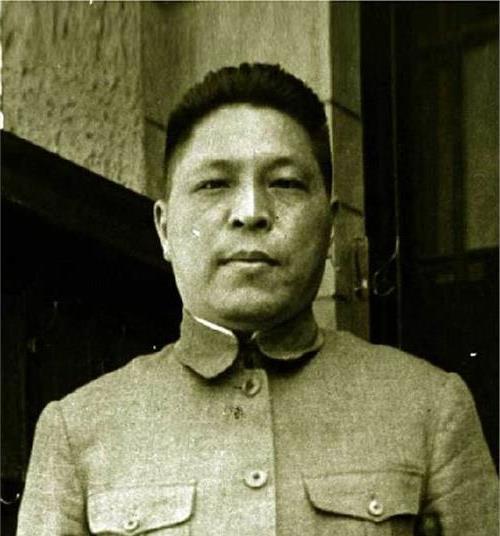Jiang Dingwen can also be regarded as a well-known figure in the ranks of the Nationalist army, not only as one of the "Five Tiger Generals of Chiang Kai-shek", but also as one of He Yingqin's "Four Great King Kongs", and he was famous as "Flying General" in the warlord melee. During the War of Resistance Against Japanese Aggression, he successively served as commander-in-chief of the 4th Army, director of the Xi'an Battalion, and commander of the Tenth and First Theaters. He fought countless battles in his life, and his reputation was mixed, but in general, he was also a heroic and good warrior.
However, the great general, who was once brave and good at war, fought the most humiliating battle he had ever fought during the War of Resistance.

After the outbreak of the War of Resistance Against Japan, in February 1939, he served as the commander of the Tenth Theater of Operations, leading the troops to fortify the area around Customs clearance to resist the Japanese Kou who came to sweep, he really lived up to the expectations of the people, the command was strong, the Japanese Kou was once blocked by the Yellow River, unable to march towards Shaanxi.
When he was the chairman of Shaanxi Province, he was not clean enough for officials, ate, drank, gambled, and had a corrupt style, and the Japanese army could not cross the Yellow River, so he was very angry, so he sent people around the Area of Jiyuan County on the north bank of the Yellow River to post propaganda posters about him embracing beautiful women and holding banknotes, but even so, it could not affect the pace of his promotion.
In December 1941, he was promoted to commander of the Kuomintang First Theater of Operations and concurrently served as commander of the First Theater of Operations, and with headquarters in Luoyang, Henan, he became the first military commander of the Anti-Japanese Resistance in the Central Plains.
In April 1944, the Japanese Kou crossed the Yellow River from the south and entered Henan, trying to divide China into two parts, north and south, one by one, and Jiang Dingwen commanded the army in Luoyang to fight a decisive battle with the Japanese Kou.
Although he called a military meeting of the generals of the Nationalist army, he did not know what was going on, and in the end he did not determine the tactics for attacking the Japanese army, and did not adjust or strengthen the deployment of troops. Instead, he studied only the officer's plans for the evacuation of the officer's family, luggage and documents to the rear. Due to poor decision-making, after the Japanese launched a powerful offensive, the deputy commander-in-chief of the front line command, Tombaugh, was defeated.
On May 4, the Japanese reached the Dragon Gate in luoyang, which was 20 miles dark, and the next day, he ordered the blowing up of important bridges in Luoyang to stop the Japanese advance. On the 26th, Luoyang fell, and he led his troops to retreat to Funiu Mountain, south of Luoning.
In this major battle, he brought more than 400,000 troops, three to four times that of the Japanese army. However, in just over a month, he lost 38 cities and lost half of his troops. The defeat in the Central Plains shocked the whole country and public opinion was in an uproar.
Although he was unfortunately defeated, he was still a gentleman and did not do his best to defend himself like Tang. He was ashamed to say that the defeat was "the biggest setback in his military participation in politics in the past 40 years," and he resigned. Therefore, he also became the only commander of the Nationalist army since the War of Resistance Against Japanese Aggression who resigned because of his defeat in the war.
Although he resigned, he still could not help but feel ashamed, and from then on he never had the face to lead the soldiers to fight, although he later served as the chairman of the general committee of the national army for a while, but he still did not go to the battlefield to lead the troops to fight.
Later, he found another way out, and even the soldiers stopped doing it and went directly to business.
He died in Taipei on January 2, 1974. Posthumously promoted to General of the First Class.